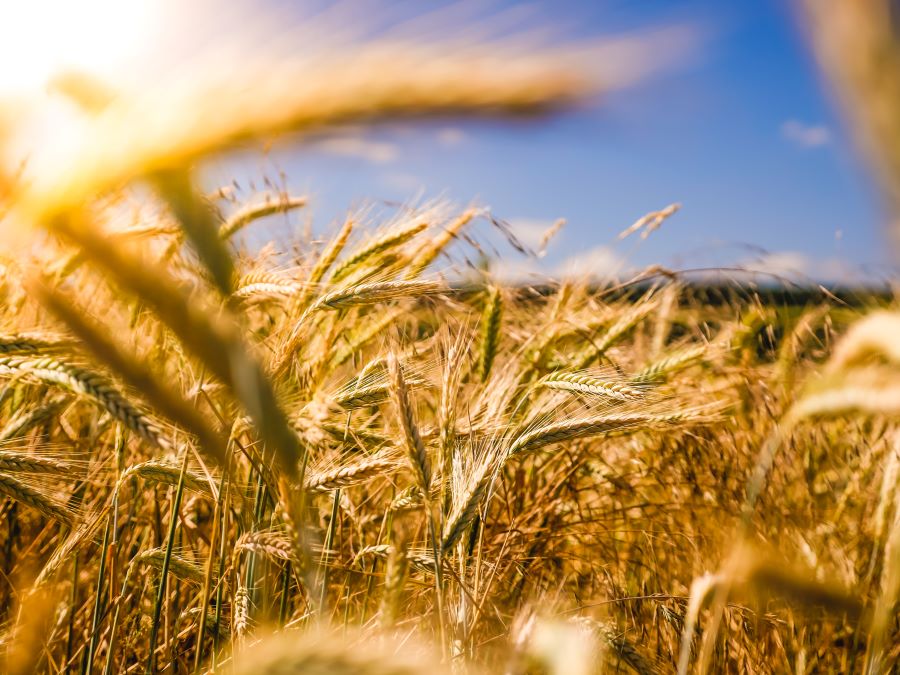Almost 60% of India’s population relies on agriculture as their main source of income. This means that there is a huge section of people who are predominantly farmers. Now, farmers need to invest a lot of money into their fields to get the results they want – seeds, fertilisers, tractors, irrigation systems, etc. How do they get through all these? With the help of agricultural loans.
Agricultural loans are quite popular with Indian farmers, and the Indian government also provides plenty of financial schemes to help them. Moreover, many banks provide agricultural loans to farmers at attractive rates, helping them feed the nation.
If you are looking for an agricultural loan for your farm, here is everything you need to know about agricultural loans.
What are the types of agricultural loans available in India?
The types of agricultural loans in India can be divided into two parts – based on tenure and end-use.
Agricultural loans based on tenure
There are two kinds of agricultural loans available for farmers based on tenure:
Agriculture term loan:
- For the long term
- To cover non-seasonal expenses for farmers
- Funds can be used for buying/upgrading machinery or land
- Repayment tenure is flexible
Kisan Credit Card (KCC) or Crop loans:
- Short-term loans to help farmers meet their seasonal expenses
- Funds can be used to buy seeds, crops, etc.
- A minimal amount of money is provided in these loans
Read more: What is an unsecured personal loan?
Agricultural loans based on end-use
There are three kinds of agricultural loans available for farmers based on end-use:
- Solar pump set loan – To purchase a photovoltaic pumping system in order to boost irrigation facilities
- Farm mechanisation loan – To buy, repair or upgrade farm machinery
- Allied agricultural activities loan – To cover current financial needs and long-term needs for associated agricultural activities
There are a few types of agricultural loans as well, which are not as common, but can still be used:
Agricultural Gold Loans
Here, farmers can provide some gold as collateral in order to obtain their agricultural loan. It is usually offered to cover farming expenses. In addition, the interest rate on these loans is quite low and allows farmers to use their gold to get funds, which would otherwise just sit at their homes or in their lockers.
Horticultural Loans
This form of agricultural loan is provided to farmers who are looking to grow vegetables. These loans cover the finances needed for cutting wild trees, setting up fences to protect farm produce from animals, etc.
Forestry loan
There are many farmers who produce food items that grow on trees. For them, forestry loans are a way to get quick financing, which can be repaid later. The finances can be used to farm the trees in a proper manner, setting up boundaries or fences, sourcing the right set of equipment and more.
Read more: How to get personal loans for the self-employed in India?
What are the eligibility requirements for agricultural loans?
Here are the eligibility criteria that you must meet to get an agricultural loan from a bank or financial institution:
- The applicant must be between 18 to 65 years of age
- Loan applicant must be an Indian citizen
- There must be no criminal record of the applicant
- The candidate must not have defaulted on any loans in the past
NOTE: Each lender in India may have different eligibility criteria for offering agricultural loans. However, the eligibility conditions given above are commonly found across all banks.
What are the interest rates on agricultural loans?
Farmers are the food producers of our country. Without their blood, sweat and hard work, we would not have sustenance. As a result, it is only right that agricultural loans offer interest rates that are quite low, compared to other forms of loans. For most banks, the interest rates for agricultural loans start from 7%. To get the best deal on your agricultural loan, compare the offers from various banks.
What are the benefits of agricultural loans?
Here are some of the benefits of agricultural loans:
- The interest rate is very low
- There is minimal paperwork involved
- Processing is fast
- Repaying the loan is flexible
- Some lenders also offer unsecured agricultural loans, depending on the applicant
- The loan amounts sanctioned can be used for various agricultural activities
Read more: What is the minimum salary required to get a personal loan?
How to apply for agricultural loans?
Farmers can submit an application for agricultural loans online or offline. To apply online, log in to the bank’s website, fill out the application form, provide all the necessary details and click on apply. For the offline method, visit the nearest bank branch and make sure to carry all the necessary documents with you, so that the loan application gets processed faster.
You will only get your loan once the verification process is complete, whether you apply online or offline. Meanwhile, for those who are looking to get a loan without providing any collateral, try out Airtel’s personal loan offering. Apply today on the Airtel Thanks app.
FAQ’s on Agricultural Loan
- What is an agriculture loan, and how is it different from other types of loans?
These loans are provided to farmers to help them in financing their seeds, machinery, purchasing land and for other uses. Agricultural loans have a very low rate of interest and have flexible repayment tenures.
- What are the typical purposes for which farmers and agricultural businesses seek loans?
Farming requires a lot of investment right at the beginning – plenty of land, seeds, fertilisers, irrigation equipment, the right set of tools and machinery and a lot more. Farmers and agricultural businesses often need loans for these purposes.
- What types of agricultural loans are available, and how do they differ in terms of repayment terms and interest rates?
There are many types of agricultural loans available to users, such as short-term and long-term, agricultural gold loans, mechanisation loans, and more. Repayment of these loans can be done with monthly instalments or all of it can be paid back in one go. The interest rates for agricultural loans is quite low, starting only at 7%.
- What are the eligibility criteria for obtaining an agriculture loan?
Here are the eligibility criteria for getting an agriculture loan: applicant must be between 18-65 years old, has no criminal record, must be an Indian citizen, good credit repayment history.
- How is the loan amount determined, and what factors influence the approval of an agriculture loan application?
The loan amount is determined after an internal verification is completed by the lender. A good credit history and the ability to repay the loan amount along with interest will influence the loan approval process positively.
- Can you explain the different government schemes and subsidies available for agricultural loans?
There are multiple government schemes and subsidies that aid agricultural loans. Here are some of them: Kisan Credit Card (KCC), Swarnim Yojana (gold loan), financing to joint liability groups, financing to NHGs under the national rural livelihood mission and many more.
- What collateral or security is typically required for an agriculture loan?
Banks usually do not demand any collateral or security if the loan amount is up to ₹1.6 lakhs. However, banks could ask farmers to provide the land as a security in case the loan amount is higher than this.
- How are interest rates for agriculture loans calculated, and are there any provisions for interest rate subsidies?
Interest rates for agriculture loans at most banks start from 7%. However, the interest rate can vary from one lender to another. Loan applicants can also negotiate with the bank to reduce the interest levied on agriculture loans.
- What is the loan repayment schedule, and are there flexible repayment options based on the agricultural season?
The loan repayment schedule is very flexible. Farmers can opt to pay back the entire amount at once or pay back in instalments. The repayment option can also be fixed by the bank according to the harvesting season.
- In case of crop failure or unforeseen circumstances, what provisions are in place for loan repayment flexibility or restructuring?
If the crop loss is between 33% and 50%, then banks can increase the repayment period by up to 2 years. However, if the loss is above 50%, banks have been instructed by the RBI to increase the repayment period by 5 years.
- Can agricultural loans be used for both input costs (seeds, fertilizers, etc.) and capital expenditures (equipment, land purchase, etc.)?
Yes, these loans can be used for both input costs and capital expenditures.
- What role do credit scores and financial history play in the approval process for agriculture loans?
A good credit score denotes creditworthiness to the bank. A good financial history also helps in the approval process because it assures the bank that you can be trusted with credit.
- Are there specific loan products for organic farming or sustainable agricultural practices?
Yes, NABARD provides loans and specific subsidies to farmers who engage in organic farming or sustainable agricultural practices. Visit the official NABARD website to get further clarity on this.
- How long does it typically take to process an agriculture loan application?
In most cases, banks or lenders do not take a lot of time to process an agriculture loan application. Once the internal review is complete, the bank will provide you with the loan quickly.
- What documentation is required when applying for an agriculture loan?
The following documents will be needed: two passport-sized photos, a filled application form, a Kisan credit card (KCC), ID proof, address proof and proof of income.
- Are there penalties for early repayment, and what are the consequences of defaulting on an agriculture loan?
No, there are no penalties for early repayment of agricultural loans. However, defaulting on an agricultural loan will badly affect your credit score, and you will not be able to get credit later on. You may also lose the collateral that was offered in exchange of credit.
- Do agricultural loans cover both small-scale and large-scale farming operations?
Yes, agricultural loans can cover both small-scale and large-scale farming operations.
- What are the challenges or risks associated with agriculture loans, and how can they be mitigated?
The biggest challenge with these loans is that the weather keeps changing and any seasonal variations may lead to an unsatisfactory harvest season. Fluctuations in market prices can also affect farmers, although measures such as MSP have now been put into effect to ensure farmer’s interests are protected. Two of the best way to mitigate the risk of changing weather is by signing up for crop insurance and ensuring crop diversification.
- Are there any special considerations or benefits for young farmers or first-time borrowers in agriculture?
Yes, the Government provides multiple benefits to young farmers or first-time borrowers – lower interest rates, subsidies and incentives, skill development and training, startup grants/incubation programs for agri-businesses and much more.
- How can farmers stay informed about changes in policies or new financial products related to agriculture loans?
Here are some ways to stay updated – visit Government websites and portals regularly, engage regularly with local agricultural co-operatives, join farmer’s associations and groups, check for SMS texts by the Government, agricultural loan melas and many more.


 Get App
Get App  Airtel Store
Airtel Store  Login
Login 


